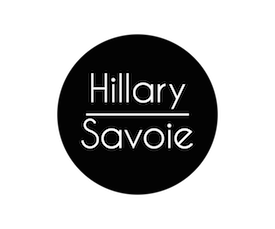My nephew is five. He is stinking adorable and curious and delighted with the world in the way that only a five-year-old can be. He is still parcing out what is real and what is imagined. And since he is enough in awe of the things that are real, the imaginary seems possible. Why can’t there be superheros, if there can be mosquito hawks? I mean really, Spiderman seems more likely than a mosquito hawk, am I right?
Not long ago he asked my sister if superheros were real. She responded that they are, that there are superheros walking around us all the time, we just don’t know it. He seemed unsure. So she said, “Like, Ezzy. Ezzy is a superhero.” He is a huge fan of Ezzy (I mean, really, who isn’t?), but he thinks she is really amazing…so he knew my sister must be telling the truth. So he asked, “Can Ezzy fly?” My sister told him she wasn’t sure and that he’d have to ask me.
Thanks sis…
But it got me thinking, so many superheros are mutants, right? Now, I’m not that well versed in superhero history, but I know that Batman was just a regular guy and Superman came from another planet. But the likes of Spiderman and X-Men, that class of superheros…they have something happen that changes their DNA and then they are different than other humans, special, mutants.
We don’t yet know the cause of Ezzy’s disorder, The Cute Syndrome, but it is generally assumed that her disorder results from mutations, some teeny tiny difference in her DNA. This is something that, in all likelihood happened randomly while she was a collection of dividing cells: oops. This is how all human variation occurs: oops. This is how we evolve, through errors in cell replication.
We celebrate the mutations that have brought us blue and green eyes, for instance, but when it results in a difference like Esmé’s, the discussion changes, the language changes. There is something “wrong.” Now, I know that this is difficult to separate from the discussion of medical conditions–especially life-threatening ones–and their identification. However, I think this is an especially important discussion to have as our technology for identifying “mutations” in genetic material is improving, but our discussions in our society about what it means to have a mutation are not.
Take for instance, the case of an in utero identification of an operable heart anomalie. Esmé has a little friend who has such an anomalie. She had surgery at six weeks and will need a second surgery in childhood. She runs, talks, develops like all the children around her. Most people would say that this is amazing that we can know about such an anomalie, fix it, and a child who might not have survived 20 years ago can live a fantastic and healthy life. You will get no argument here. It is amazing.
Mutations can also cause syndromes, which are, by definition, a collection of characteristics and symptoms. There are defining physical, intellectual, and social characteristics associated with different syndromes–a heart defect, like the one I mentioned above can be one of a handful of symptoms of an underlying syndrome. Some syndromes have an effect on personality causing unusual social behavior. For instance in a rare syndrome, Angelman’s Syndrome, one of the defining characteristics is excessive happiness, smiling, and laughter. There are all sorts of other characterists associated with Angelman’s–intractable seizures, severe language impairment, shared physical traits–but to have a disorder with happiness as a side-effect…what does this mean? How do you separate this from who this person is? How much of this is the person? How much the syndrome? And does it matter?
Well, it does if you are going to discuss “treating” a syndrome. This still sounds crazy to me, but some syndromes, like Angelmans, are close to being treated with gene therapy. I must admit, I don’t know exactly what this means (I am not certain many people do yet). But I do know that it raises some serious questions. Not the least of which is what “symptoms” of a syndrome are valid to treat? Is it acceptable to treat a heart condition, sure, I generally think so. Seizures, probably…although I sometimes wonder if there is a important reason for seizures that we don’t yet understand. Intellectual impairment? Happiness? This is really shady ground. How much are you “treating” who someone is? How much are you denying them the right to just be? I don’t have answers to these questions…but I know the questions are important.
Now, to come back to my discussion of mutants and superheros…who is to say what kind of human variation is a positive and what kind should be “treated?” Who is to say that the beautiful examples of human variation found in people with Angelman’s, with all manner of other syndromes, aren’t here to save us?
And I don’t say this lightly, knowing all-to-well the serious medical implications of these syndromes: the stress and strain on the bodies of children like mine, the fear in parenting a child with complex medical issues, the financial burden on us and on society. These are real concerns. They don’t just disappear.
But I also know that my daughter is absolutely a superhero. I believe she has saved me many many times over. I know that I would think my child was special no matter what her health status. But because of/despite/along with her medical issues comes a tremendous joy that her body seems, at times, incapable of containing, a unspeakable bravery, a solemn understanding, a drive to live, and a need to connect that is all beyond heroic.
And as we face the questions of treating her GERD, her seizures, her tone, and possibly someday her syndrome, I don’t always know the right thing to do. I want her to be safe and comfortable. But I never want her to change fundamentally…this can means something from as simple as not overmedicating her such that she is zombie-like, to the questions of gene therapy I expect we may need to discuss someday.
Esmé is certainly not the child I dreamed of, because I was too simple-minded to know that she was exactly the child we needed… She’s probably a mutant, definitely a superhero…and, to answer my nephew, it would not surprise me one bit if she could fly.

